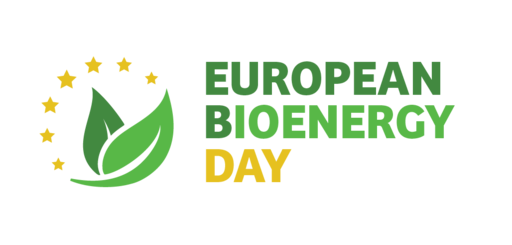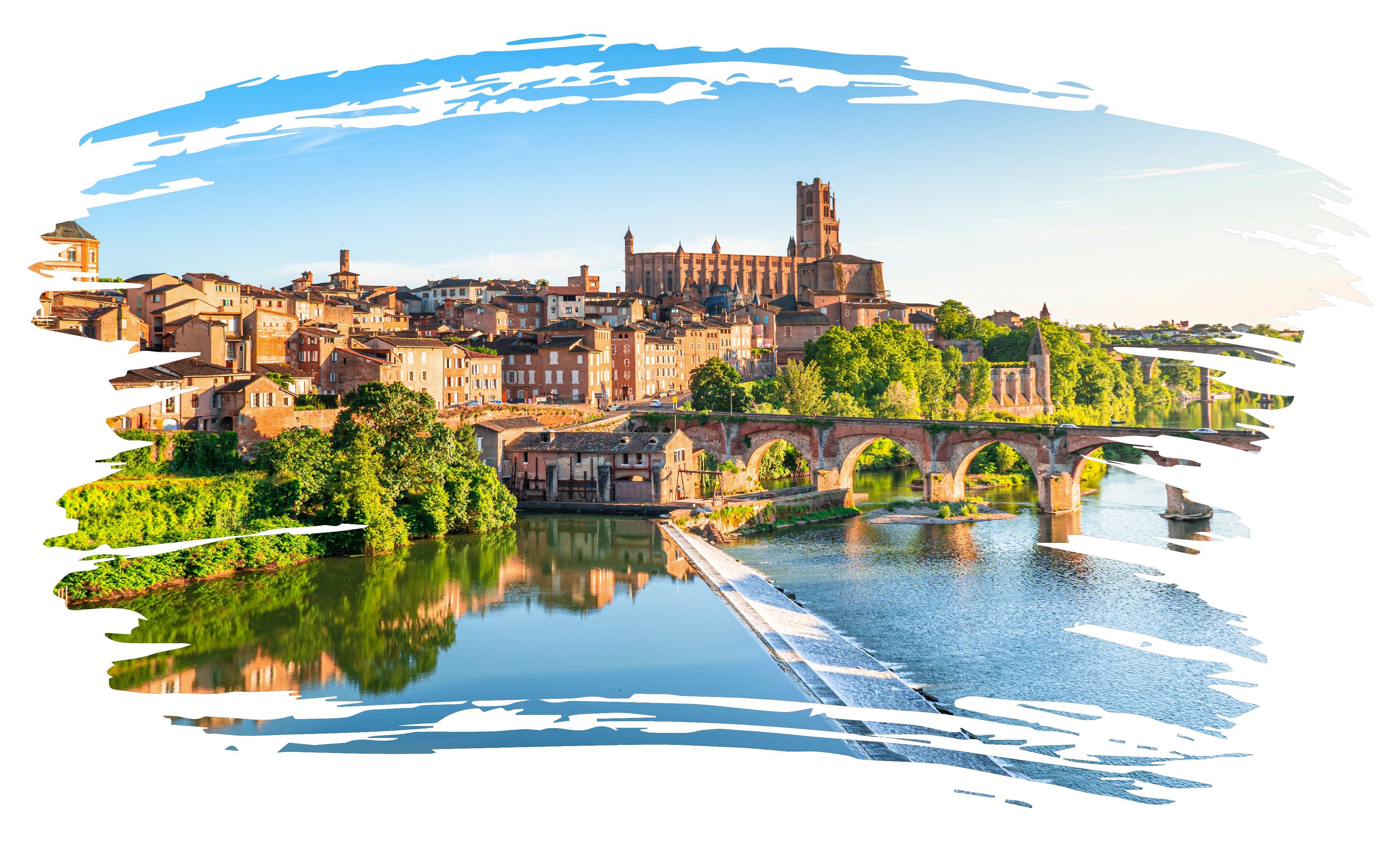Three examples showcase how the use of locally available agrobiomass provides heating for the local communities in France.
As part of the EU-funded project AgroBioHeat, this example showcases the benefits of locally available renewable energy sources in rural areas!
Miscanthus to Warm a Retirement Home
Chevresis Monceau is a small rural city of 364 inhabitants located in the North of France. Most villagers are farmers themselves or come from farming families. The retirement home of Chevresis Monceau has 75 beds and is managed by the city council.
A few years ago, when faced with growing fuel oil prices, the management of the facility investigated renewable energy options for heating, which is the most important source of expenses in this chilly part of France. Given the farming background of the community, miscanthus was quickly considered. The advantages of this type of energy are diverse: it is locally produced, giving an additional source of income to three local farmers; it is 100% renewable, it is easy to shred and easy to transport by farmers. Moreover, miscanthus also has a positive impact on the local environment: since it is collected in spring, the fields are a shelter for the wildlife in winter, in this region where most forests have disappeared. Finally, it is planted for 15 years and helps restoring the soil for farming cereals.
The technical challenge of burning miscanthus was not simple to overcome. The boiler has to be carefully chosen with moving grates) and the combustion produces a lot of ashes and possibly clinker, if not well controlled. Finally, the chopped miscanthus has a tendency to get hard if there is moisture in the storage tank; therefore the tank must be very waterproof.
The experience of Agronergy an ESCO that provides renewable heating solutions based on biomass and that delivered the biomass installation at Chevresis has provided good results after some years of usage. Combustion has been mastered, the farmers provide good quality, dry, well shredded miscanthus, and the inhabitants of the retirement home are satisfied with the level of the heating comfort provided.
Download the factsheet here.
Hedgegrow Prunings to Supply a Community Heating Network
Located near Saint Brieuc in the Côtes d’Armor department of the Brittany region, this rural town has nearly 1,300 inhabitants. Commissioned in October 2016, the installation blends into the landscape of the village La Méaugon, and delivers heat to two substations via a network of 160 meters: the town hall and the multipurpose room located at the top of the rock, on the one hand, and the school, canteen and nursery, below, on the other. In total, 1940 m2 are heated.
The story dates back to 2010. The two gas boilers which supplied the town hall and the village hall, as well as the fuel fired boiler of the school group reaching the end of its life, the desire to reduce the energy bill which rose each year to 32.000€, i.e. 5% of the operating budget.
The elected officials of the municipality, Mayor Armelle Bothorel, and Deputy City Councilor Jean Marc Labbé, passionate about renewable energy and convinced of the value of the local wood resource, made it possible to complete this project.
The 65 tons of wood chips consumed each year are supplied by SCIC Bocagénèse from sustainably managed hedges, i.e. where the harvesting of the resource is planned, selected, to allow regeneration or program the corresponding replantings. The shredding is carried out by a local service provider, which makes it possible to achieve a P31 P45 particle size. The wood chips, previously dried in a ventilated shed for 6 months up to 25% humidity, travel about thirty kilometers and are delivered once a month in winter. The useful volume of the silo being 60 m3, the maximum quantity delivered is 11 tons or 40 m3. Contracted at €31,5 MWh per tonne is marketed at €110.
A new propane gas boiler has also been installed as a backup system in the event of unavailability of the biomass boiler. Over the last 3 years, this boiler has consumed 30 MWh, or only two tons of propane gas, while the biomass boiler has produced 581 MWh of heat, consuming 204 tons of wood chips.
Download the factsheet here.
Miscanthus to Warm a Historical Abbey Building
Established in 1129 by Saint Bernard, Notre Dame d’Ourscamp became one of the most important Cistercian monasteries in northern France. Still in use today, the 3.000 m2 of the historic building required 60.000 litres of heating oil per year. In 2014, Father Bernard began thinking about replacing this fossil fuel with renewable energy from local biomass.
Located in a wooded area and in the immediate vicinity of the Ourscamp Carlepont national forest, the project first turned to wood chips as a potential fuel. As forests already have good crushing outlets, the wood energy sector is relatively underdeveloped in this sector. A quick survey with a supplier made it possible to estimate the cost of the forest chip around 140 €/ton, and ready for use.
At the same time, two local farmers, located 6km from Pimprez and 18km from Frétoy le Château, and having planted miscanthus, offered a contract at 120 €/ton. Around 170 tons of miscanthus were estimated to be needed. Since the heating value of miscanthus exceeded that of the wood chips, Father Bernand opted for the most economically interesting fuel in his case.
Being classified as a historical monument, the modification of the buildings was difficult to envisage. In addition, a meeting room project being planned on the ground floor of the future boiler room, it was decided to build the silo on the 1st floor of an existing building. Since there was no handling equipment, neither tractor nor bucket, a vertical screw was chosen as the fuel conveying mode.
A thermal demand study was carried out by Father Bernard in conjunction with Saelen, the importer of the German brand Heizomat. Special care is made to ensure that the boiler is properly maintained and that regular ash cleaning takes place to avoid any operating issues.
Download the factsheet here.
About AgroBioHeat
The Horizon 2020 funded project AgroBioHeat “Promoting the penetration of agrobiomass heating solutions in European rural areas” aims to produce a mass deployment of improved and market-ready agrobiomass heating solutions in Europe. Agrobiomass is a large, underexploited, and indigenous resource, which can support the achievement of the European Energy and Climate targets while promoting rural development and circular economy.
![]() This project has received funding from the European Union’s Horizon 2020 research and innovation programme under Grant Agreement No 818369.
This project has received funding from the European Union’s Horizon 2020 research and innovation programme under Grant Agreement No 818369.
Wood-energy: An Asset for Ecofriendly Heating Networks
Heating networks are a major asset for rapidly reducing CO2 emissions. Heating accounts for about half of energy consumption in France and wood energy makes a significant contribution to the greening of energy consumption in the EU. These centrally produced heat distribution systems serve several users via several heat production units. They are set up by local authorities to heat public and private buildings from a collective heating room and increasingly rely on renewable energy sources. Dalkia, a subsidiary of the French EDF Group, is committed to the greening of heating networks in order to meet national and EU climate and energy objectives. With this contribution, the French energy mix will consist of 73% local renewable and recovered energy by 2030, a quarter of which will come from woody biomass. Biomass is actually the leading renewable energy source in France and heating networks.
Today, thanks to the development of renewable and recovered heat, heating networks reduce greenhouse gas emissions more quickly than wind power, photovoltaic and heat pumps for the same amount of investment. Strengthened by the current energy crisis, wood energy is more essential than ever as it addresses the challenges of both climate change adaptation and energy independence.
About Dalkia
Dalkia, a subsidiary of the EDF Group, is developing increasingly green and local energy vectors through its use of wood energy. It is one of the major players in wood energy, present throughout France and internationally. For more than 80 years, the company has been developing renewable and recovered energies and helping its customers to save energy and reduce their CO2 emissions.
About the campaign
The campaign is powered by Bioenergy Europe and relayed across Europe by both national and international partners supporting the belief that bioenergy is more than a renewable energy source, it is also a reliable path that will lead Europe to achieve its renewable energy transition in the shortest span of time.



